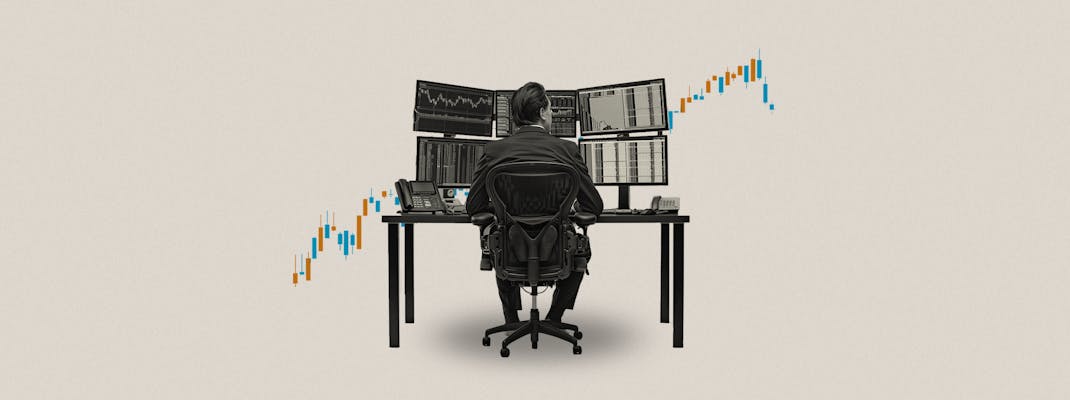
Day Trading: How Many Traders Lose Money?
Day trading promises huge profits in the shortest time. But for how many traders does this promise really come true? Or does the vast majority lose out?
You’ve surely heard the stories: day traders who made quick profits with a few clever trades, quit their office jobs, and now enjoy a life of freedom.
The dream of day trading promises big profits in the shortest time. That’s why ordinary people try their luck at the fast-paced game on the stock market. Some jump in without any preparation (and find out after their first losses that it’s not that easy after all). Others ask questions first in forums and subreddits.
«95 percent of all traders lose money,» they read in one article. In another forum, they encounter the 90-90-90 rule: «90 percent of all traders lose 90 percent of their capital in 90 days.» These figures are sobering, but none can be verified. That’s why we delved into the scientific literature to investigate the question: How many traders actually lose money?
What does science say?
To get straight to the point: We did not find the universal answer. Most traders simply quit quietly. They don’t publish their figures.
Perhaps you have to ask the question about day trading success differently. The Californian researchers Brad M. Barber, Yi-Tsung Lee, Yu-Jane Liu and Terrance Odean split it into two questions: How many traders have stayed the course and are still trading? And how many of them make regular profits?
What they found is sobering: the first 40 percent gave up after just one month. After five years, a total of 93 percent had left trading. (I hope their losses weren’t too large.)
Even the remaining seven percent are not all successful traders. Far from it. They may still be there after five years. (Perhaps they’ve made the stock market their hobby? Maybe they're just particularly persistent, always losing money but have enough lucrative main income and still believe they’ll make it one day? That would be another interesting study…)
After five years, it’s only the very best who are still there and profitable. As Barber, Lee, Liu and Odean summarise: «Day traders with strong past performance also achieve strong future returns. However, after fees are deducted, only one percent of them are predictably profitable.»
One percent. Just one trader out of a hundred.
Why Do Traders Lose?
Overconfidence. The study by Barber et al. found that many traders overestimate their abilities and continue trading despite ongoing losses. This overconfidence means they don’t learn from their mistakes and blame the market for their losses. As a result, they stick to unprofitable strategies.
High Costs. Frequent trading incurs significant transaction costs, including commissions, stamp duties, and spreads. These costs eat into potential profits and contribute to overall losses. Even traders who make gross profits before fees often end up with net losses once these expenses are factored in.
What Are the Alternatives?
Fortunately, things look different for long-term investors. Almost all of them are successful in the long run. For them, the market is not a zero-sum game. In the long term, it’s win-win. The pie grows as the economy grows, and everyone can get a piece of it.
This rarely brings the double or triple-digit returns traders dream of. But you still get a reward even if all you do is decide you want to take part. For example, conveniently with wealth management from True Wealth.
Sources
- Brad M. Barber, Yi-Tsung Lee, Yu-Jane Liu, Terrance Odean, Ke Zhang, Do Day Traders Rationally Learn About Their Ability? (2017).
- Barber, Brad M., and Terrance Odean, 2001, Boys will be Boys: Gender, Overconfidence, and Common Stock Investment, Quarterly Journal of Economics, 116, 261-292
- Barber, Brad M. and Lee, Yi-Tsung and Liu, Yu-Jane and Odean, Terrance and Zhang, Ke, Learning Fast or Slow? (2019).
An earlier version of this article was published on 22.01.2016.
About the author

Oliver is one of the founders of Switzerland's largest online shops: the online retailer Galaxus and the electronics specialist Digitec. Together with Felix, he launched True Wealth AG in 2013.

Ready to invest?
Open accountNot sure how to start? Open a test account and upgrade to a full account later.
Open test account